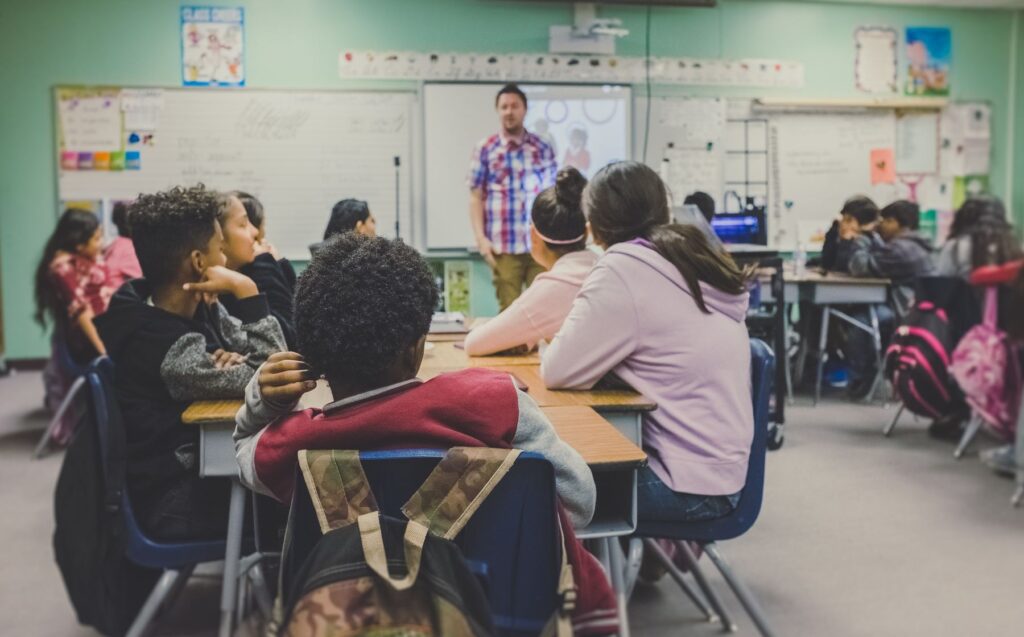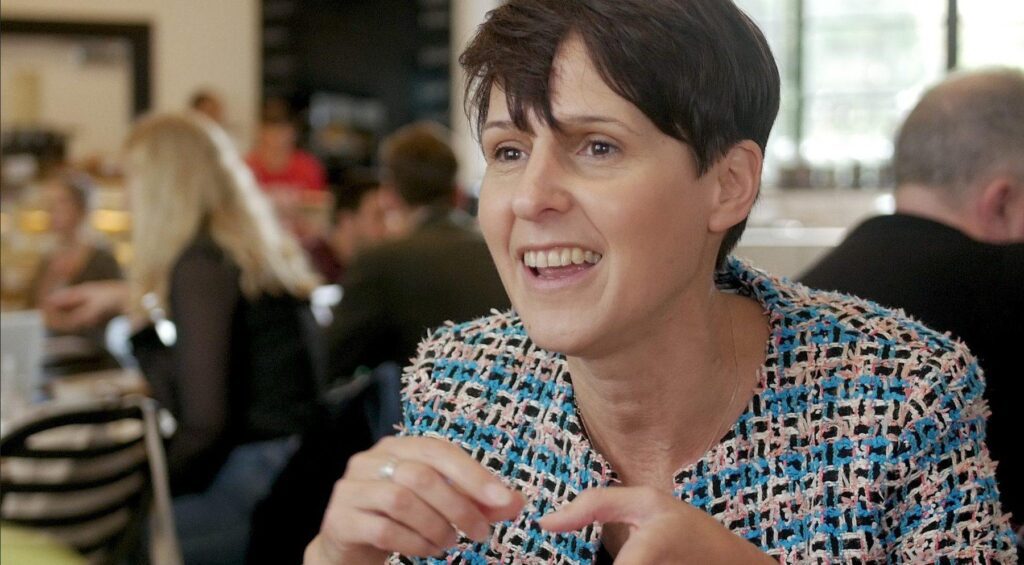
Learning builds in schemas; knowledge allows you to accrue more knowledge. What does it mean? As we learn, we arrange information into sets of ideas (schemas) that help us make sense of the world. This makes future recall easier because whole sets of ideas can be recalled together. This is why knowledge builds on knowledge. […]

Teaching is a two-way interactive process; teachers and students need feedback from each other about how the learning process is going. What does it mean? This is one part of ‘formative assessment’. Classroom research indicates that effective teachers ask more questions to more students, in a more in-depth way, checking for understanding across all students. […]

Direct instruction is important with novice learners, especially those with weak prior knowledge and low confidence. What does it mean? Research from Clark, Kirschner and Sweller suggests that direct forms of instruction are much more effective than approaches that rely on students finding things out for themselves and that novice learners cannot simply copy the […]

Learning is about committing knowledge to long-term memory, not immediate performance. What does it mean? There are different technical ideas about what ‘learning’ means, but we would probably all agree that even if a student can give a good answer or demonstrate a skill today, that doesn’t mean they have learned it. Without strategies […]

Cooperative learning or group work can be extremely effective, but it needs the right conditions. What does it mean? It is vital to distinguish between structured team learning and informal group learning. Structured team learning – or cooperative learning – has yielded strong results in trials when there are two conditions in place: Group goals. […]

An estimated 40% of children aged four to 16 years old across England and Wales have sleep issues As a primary school teacher, morning conversations with parents often revolve around how well each child slept the night before. Comments such as ‘he has been up since 2am’ and ‘she is really tired today – good […]

Girls very often enjoy science, but don’t see it as ‘for them’. Professor Becky Francis from the Institute of Education talks science, disadvantage and grouping.

Title: Children as agents of social and community change: Enhancing youth empowerment through participation in a school-based social activism project Published: Education, Citizenship and Social Justice (2018) Vol. 13(1), pp. 3– 18 Authors: Susan Torres-Harding, Roosevelt University Ashley Baber, Loyola University Chicago Julie Hilvers, Roosevelt University Nakisha Hobbs, Village Leadership Academy Michael Maly, Roosevelt University What […]
Title: The Play’s the Thing: Experimentally Examining the Social and Cognitive Effects of School Field Trips to Live Theatre Performances Published: Educational Researcher (2018). Vol. 47(4), pp. 246– 254. 2018 Authors: Jay P. Greene (Professor of Education, University of Arkansas) Heidi H. Erickson (Doctoral Fellow, University of Arkansas) Angela R. Watson (Distinguished Doctoral Fellow, University of […]

Pendle Vale College (11-16) is an average-sized mixed secondary school (with 1,050 students) in the deprived area of Nelson in Lancashire. The proportion of students from a minority ethnic background and those whose first language is not English are well above the national average. Over a third of our school population is eligible for pupil premium […]

A great deal of work is going into ensuring that teachers are not only aware of, but are also applying techniques in education to ensure the progress of students. Evidence-based practice and research in the classroom are informing what happens in schools, with many teachers buying into new and innovative ideas. There is, however, one […]

The heightened interest around teacher recruitment and retention in the last few years (Doherty and Gerrard, 2016; Lynch et al., 2016; DfE, 2017; Ward, 2017) has given rise to the timeliness of a report published by the NFER and the Nuffield Foundation. Is the Grass Greener Beyond Teaching? (Bamford and Worth in 2017) presents a robust, […]

Ravensthorpe Primary School is a diverse school and its pupils come from a wide range of social and ethnic minority backgrounds, with almost three quarters of pupils coming from the poorest quartile of postcodes in England. Pupils who speak English as an Additional Language (EAL) make up half of the school’s roll which is well […]

An important point in the establishment of a new secondary school is the making of its curriculum. In 2013, XP School, Doncaster, invited researchers from Sheffield Hallam University (joined in 2016 by Auckland University) to work with its teachers, involving school visits, sharing of curriculum plans and curriculum evaluation. This paper describes the research-informed outcomes […]

Feedback that opens up thinking and discussion involves engaging with responses to questions and offering pupils opportunities to express themselves. Classrooms where effective interactive learning takes place are characterised by use of feedback to create a conversational environment. This research review outlines some practical approaches to two-way feedback and open questioning, drawing on two school-based […]

Note: The author of this article, Lisa Cook, works for Challenging Learning, an organisation offering chargeable support, training and consultancy services to schools on a range of topics including metacognition. ‘The ability to critically analyse how you think’ or ‘thinking about one’s thinking’: these two definitions best capture how I understand metacognition. Metacognition was a […]

‘Reading is boring’ – a comment that I have heard numerous times from a variety of students, and a concept that I find incredibly difficult to comprehend, especially as a voracious reader myself. This receptive skill is an integral part of daily life and, as an English as an additional language (EAL) teacher, I […]

‘It is our hope… to improve the amount and quality of oracy teaching in British schools, so that young people are better prepared for life in the 21st century.’ ((Mercer et al., 2017), 2017, p. 17) So writes Neil Mercer, emeritus professor at Cambridge University and a researcher at the forefront of oracy pedagogy. This […]

Amy’s geography teacher has asked the class to prepare a short presentation about rainforest ecosystems. To plan this, Amy reflects on how she learned best on the last topic – using the school textbooks – and decides to read the relevant chapter before drafting her presentation points. However, when reading it, she decides that the […]

One of the many challenges facing the evidence-informed teacher or school leader is knowing when to trust the experts (Willingham, 2012). Great importance is often ascribed to meta-analysis in the EEF’s Teaching and Learning Toolkit (for example, see (Teaching and Learning Toolkit, 2018)), and by influential commentators such as John Hattie (Hattie, 2008), and as […]



















